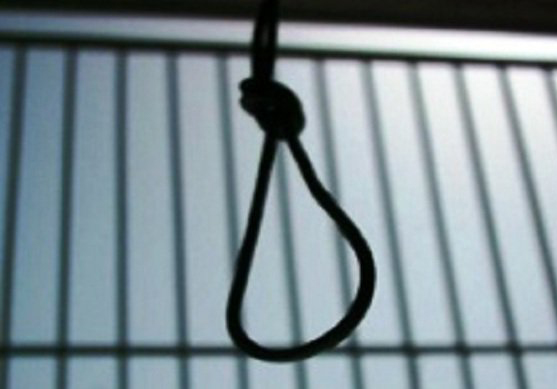
Mar 20, 2020 | News
The ICJ condemned the execution today of four men who were convicted of raping and murdering a 23-year-old student in December 2012.
The ICJ denounced the executions, and urged the Indian Government to abolish the death penalty. It called on the Government to introduce systemic changes to the legal system that would deter violence and improve access to justice for women.
“State-sanctioned executions are little more than public theatre that risk celebrating and perpetuating violence at the expense of the rule of law,” said Frederick Rawski, ICJ Asia-Pacific Director. “As heinous as these crimes were, the imposition of the death penalty – the deterrent effect of which has been widely debunked – does nothing to improve the lives of women.”
According to senior lawyer Vrinda Grover, a renowned Indian human rights defender, “In 2013, the criminal laws were amended; however seven years later the graph of rapes has not diminished.”
Instead of compelling the state to invest in plugging the gaps in the investigation, prosecution and adjudication of sexual crimes and formulating victim oriented processes, the clamour for execution of the convicts has hijacked the discourse. Seven years later, the power of the state to extinguish life stands entrenched, while women and girls in India continue to struggle to live a life of freedom, safety and dignity, as equal persons, ” said Vrinda Grover.
The UN Human Rights Committee has stated that “[t]he death penalty cannot be reconciled with full respect for the right to life, and abolition of the death penalty is both desirable and necessary for the enhancement of human dignity and progressive development of human rights.”
The ICJ opposes capital punishment in all cases without exception as a violation of right to life and to freedom from cruel, inhuman or degrading punishment.
The ICJ called upon the Indian Government to join the large majority of States and take immediate steps to end the practice of capital punishment, as prescribed by repeated United Nations General Assembly Resolutions.
To download the full statement with background information, click here.
Contact
Maitreyi Gupta, ICJ India Legal Adviser, t: +91 77 560 28369 e: maitreyi.gupta(a)icj.org
Frederick Rawski, ICJ Asia-Pacific Director, t: +66 64 478 1121; e: frederick.rawski(a)icj.org
Read Also
ICJ, Press Release, September 2013 – India: Executing perpetrators of Delhi Gang Rape Case ‘counterproductive to preventing sexual violence’
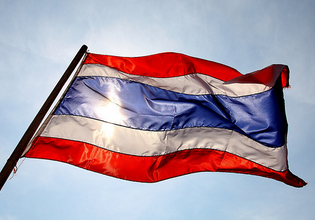
Mar 20, 2020 | News
Today, the ICJ submitted recommendations on strengthening Thailand’s Anti-Strategic Litigation against Public Participation (SLAPP) law to the Ministry of Justice.
The Ministry of Justice is tasked to conduct a “study on the guidelines for development of laws, regulations or measures to prevent SLAPP,” in accordance with Thailand’s First National Action Plan on Business and Human Rights (2019 – 2022) (NAP).
Articles 161/1 and 165/2, which are intended to implement the NAP, entered into force on 20 February 2019 and 21 March 2019. They were introduced to end SLAPP lawsuits or similar forms of harassment through the legal process against any individuals, including human rights defenders. NAP also refers to the power of a public prosecutor under Article 21 of the Public Prosecution Organ and Public Prosecutors Act as another measure to prevent SLAPP lawsuits.
The use of SLAPPs and similar procedures frequently undermine human rights, including freedoms of expression, association and assembly and the right to political participation. These are protected under Thailand’s Constitution and international human rights obligations.
In the letter, the ICJ expressed its concern that these laws were inadequate to prevent harassment through the legal process and SLAPP. The ICJ therefore called for the adoption of a comprehensive stand-alone law, or the amendment of the Civil Procedure Code and the Criminal Procedure Code, to protect human rights defenders and others from harassment through the legal process.
Background
In an effort to give effect to the UN Guiding Principles on Business and Human Rights (UNGPs), on 29 October 2019, Thailand’s Cabinet approved and adopted the First National Action Plan on Business and Human Rights, making Thailand the first country in Asia to adopt the stand-alone NAP.
The NAP sets out plans to be followed by public and private stakeholders to ensure that businesses – from small and medium-sized enterprises to multinational corporations – respect human rights, and that the government fulfils its duty to ensure remedy and reparation in cases of business-related human rights violations.
The Thai government has identified in the NAP its four key priority issues: (1) labour; (2) land, environment and natural resources; (3) human rights defenders; and (4) cross border investment and multi-national enterprises.
NAP has set out several action points aimed at protecting human rights defenders, including:
- to study the guidelines for development of laws, regulations or measures to prevent SLAPP;
- to push for the review, amendment and repeal of relevant laws, mechanisms and protocols to facilitate protection of human rights defenders, for example with respect to witness protection laws;
- to determine or review policies, protocols, procedures and mechanisms to protect human rights defenders, including women human rights defenders, and ensure their safe conditions of work, and to provide trainings for law enforcement agencies to ensure in practice these protection measures;
- to provide trainings for law enforcement officers to widen their knowledge and understanding in enforcing laws on the protection of human rights, for example with respect to the organization of assemblies, and free expression pertaining to human rights, and preventing dishonest lawsuits that attack human rights defenders;
- to provide trainings and enhance capacity of lawyers;
- to urge businesses to ensure that human rights defenders will not be sued merely calling for rights of individuals to be protected;
- to promote the use of reconciliation mechanisms at all levels of the justice system; and
- to increase access to justice of human rights defenders.
However, NAP’s effectiveness is yet to be assessed because it does not have the status of a law, and is merely a resolution by the executive branch of the Thai government. The NAP was adopted in the form of a Cabinet Resolution, which is considered a “by-law” in accordance with section 3 of the Act on Establishment of Administrative Courts and Administrative Court Procedure B.E. 2542 (1999).
Download the letter to the Ministry of Justice in English and Thai.
Further reading
Thailand: ICJ and HRLA express concern about inadequate protections for human rights defenders in draft National Action Plan on Business and Human Rights
Thailand’s First National Action Plan on Business and Human Rights (2019 – 2022)
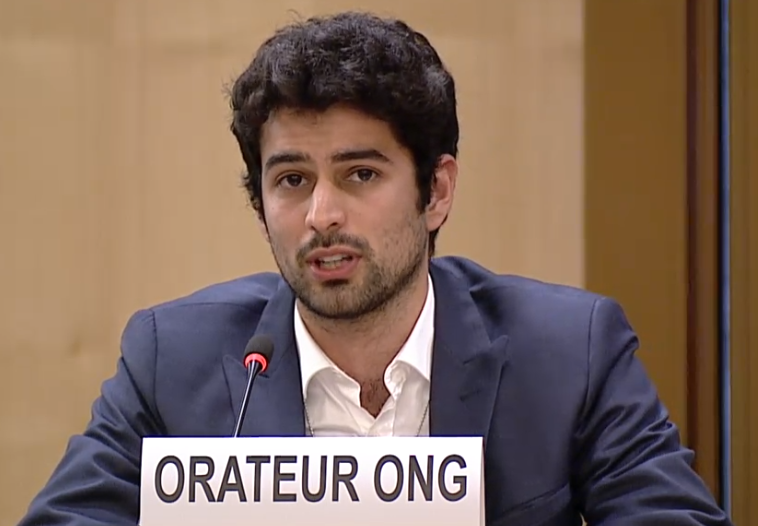
Mar 12, 2020 | Advocacy, Non-legal submissions
At the UN, the ICJ today highlighted the need for Kazakhstan to ensure the independence of the legal profession and the judiciary, in particular by ending the arbitrary disbarment of lawyers.
The statement, delivered during the adoption of the outcome of the Universal Periodic Review of Kazakhstan by the Human Rights Council in Geneva. The statement read as follows:
“The International Commission of Jurists (ICJ) welcomes the acceptance by Kazakhstan of the recommendations by Denmark (138.83), France (139.85), Mexico (139.86) and Austria (139.113) to uphold the rule of law and to protect the independence of the legal profession and the judiciary.
The ICJ however regrets that Kazakhstan only noted and did not explicitly support the recommendation by Czechia to “take immediate measures to ensure the effective protection of lawyers, media workers, bloggers and human rights defenders against any form of harassment” (139.114).
Furthermore, based on ICJ research, we regret to report that Kazakhstan’s assertion that the accepted recommendations are “in the process of implementation” (A/HRC/43/10/Add.1, para. 4) is simply not correct.
On the contrary, the ICJ considers that the independence of the legal profession is being actively undermined in the country.
The ICJ expresses particular concern at disbarment proceedings initiated by the Ministry of Justice, including the recent disbarment of Amanzhol Mukhamediarov and Yerlan Gazymzhanov.[1]
Finally, the situation is exacerbated by a Law on Advokatura that does not require the Bar Association’s authorisation to initiate disbarment proceedings.
To actually implement the recommendations accepted by Kazakhstan, ICJ calls on Kazakh authorities to stop all harassment of lawyers through disciplinary proceedings, readmit the lawyers unduly disbarred and reform its Law on Advokatura in line with international standards on independence of the legal profession.”
[1] See ICJ statement at https://www.icj.org/kazakhstan-disbarment-of-erlan-gazymzhanov-and-amanzhol-mukhamediarov-undermines-the-independence-of-the-legal-profession-icj-says/ .
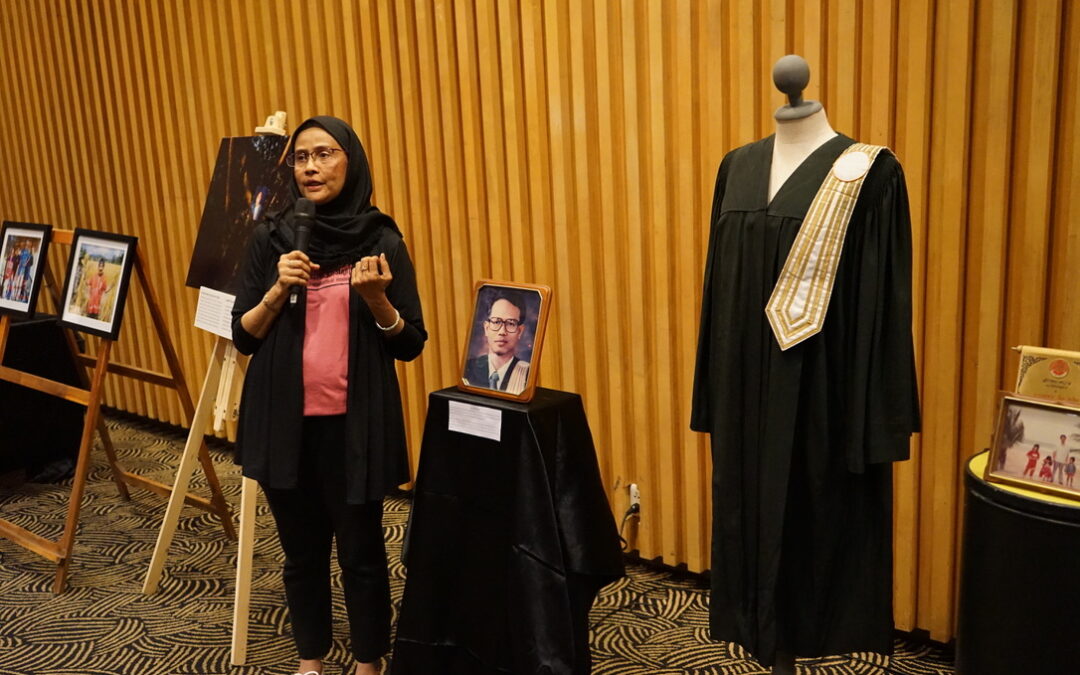
Mar 12, 2020 | News
On 11 March 2020, the ICJ co-hosted a panel discussion and an exhibition entitled “Committed to Memory: The Disappeared and Those They Left Behind.”
The event was held to mark the 16th anniversary of the enforced disappearance of a prominent lawyer and human rights defender Somchai Neelapaijit and other individuals who were subject to apparent enforced disappearance and whose fates remain unknown.
The event was held at Bangkok Art and Cultural Centre (BACC). More than 100 participants attended the event.
Opening remarks were delivered by Jenni Lundmark, Programme Officer, Delegation of the European Union to Thailand, and Associate Professor Dr. Gothom Arya, Adviser of the Institute of Human Rights and Peace Studies at Mahidol University.
Jenni Lundmark highlighted the European Union’s commitment to address torture and enforced disappearance and urged the Thai Parliament to pass pending anti-torture and enforced disappearance legislation without undue delay. Associate Professor Dr. Gothom called on the public to preserve the memory of the Thai persons who were victims enforced disappeared as well as many others whose disappearance were not recorded. He also encouraged the establishment of a network of victims of enforced disappearances to strengthen their advocates’ ability.
The event also featured photos and personal belongings of victims or potential victims of enforced disappearance, including: Somchai Neelapaijit, Thanong Po-Arn, Porlajee “Billy” Rakchongcharoen, Kamol Laosophaphan, Jahwa Jalo, Surachai Danwattananusorn, Siam Theerawut and Den Khamlae. For some of these cases, there has been a failure of authorities to conduct a prompt, effective, impartial and independent investigation into their cases. During the event, family members of the victims described stories from photos and personal belongings of the “disappeared” that were exhibited.
The panel discussion focused on progress of the investigations into enforced disappearances and evaluated the progress in developing legislation in Thailand to address this critical issue. The speakers included Angkhana Neelapaijit, wife of Somchai Neelapaijit; Thipwimon Sirinupong, lawyer who is representing Porlajee “Billy” Rakchongcharoen’s family; and Sanhawan Srisod, ICJ’s legal adviser.
During the discussion, speakers expressed concern at the recurrent delays in the amendment and enactment of the law against torture and enforced disappearance which will be critical for ensuring accountability and justice for victims of enforced disappearance. They also regretted that the latest Draft Act, after several rounds of revisions and public hearings, still had not addressed many of the principal shortcomings which the ICJ and other stakeholders and experts have indicated need necessarily be amended in order to bring the law into line with Thailand’s international human rights obligations.
The key concerns include the incomplete definitions of the crimes of enforced disappearance, the absence of provisions concerning the continuous nature of the crime of enforced disappearance and statute of limitations for torture and enforced disappearance crimes, and the inadequacy of provisions concerning safeguards against enforced disappearances.
Background
Somchai was stopped at a Bangkok roadside on 12 March 2004 and pulled from his car by a group of men. He has not been seen since.
At the time, Somchai was defending clients from Thailand’s restive southern provinces who were accused of attacking a military base as part of the ongoing insurgency in the region. Somchai had alleged police tortured the Muslim suspects.
Since 19 July 2005, DSI has spent more than 14 years and eight months investigating the enforced disappearance of Somchai Neelapaijit. However, there is little information in the public domain regarding its progress.
From 1980 to May 2019, the UN Working Group on Enforced or Involuntary Disappearances has recorded and transmitted 90 cases of alleged enforced disappearance to Thailand. Currently, 79 cases remain outstanding.
Further reading
Ten Years Without Truth: Somchai Neelapaijit and Enforced Disappearances in Thailand
Thailand: continuing delay in the enactment of the draft law on torture and enforced disappearance undermines access to justice and accountability
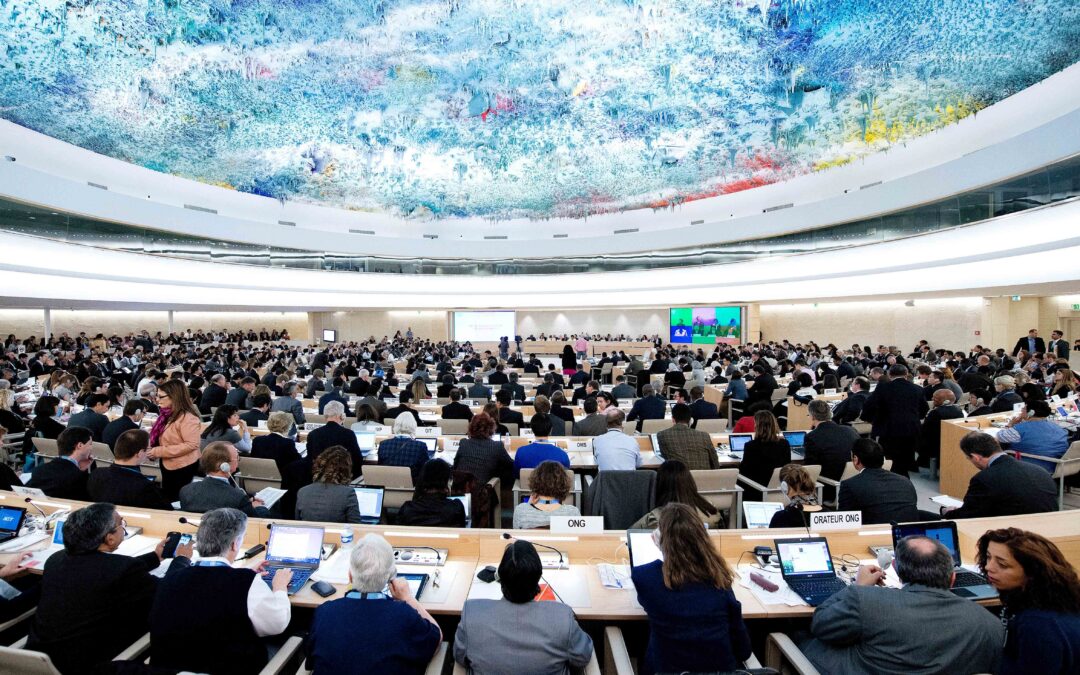
Mar 11, 2020 | Advocacy, Non-legal submissions
ICJ has joined other NGOs in urging India, Pakistan and the Human Rights Council, to take action to address the grave situation for human rights in Jammu & Kashmir.
The joint statement read as follows:
“Our organizations express grave concern over the human rights situation in Jammu & Kashmir, where the authorities imposed severe restrictions after a decision to revoke constitutional autonomy on 5 August 2019, including one of the world’s longest internet shutdowns, which the Indian Supreme Court has said violates the right to freedom of expression.
Hundreds were arbitrarily arrested, and there are some serious allegations of beatings and abusive treatment in custody, including alleged cases of torture. Three former chief ministers, other leading politicians, as well as separatist leaders and their alleged supporters, remain in detention under the Public Safety Act (PSA) and other abusive laws, many without charge and in undisclosed locations outside of Jammu & Kashmir. This violates fair trial safeguards of the criminal justice system and undermines accountability, transparency, and respect for human rights. Journalists and human rights defenders have been threatened for criticizing the clampdown. These violations, as those committed over the past decades, are met with chronic impunity.
We urge the government of India to ensure independent observers including all human rights defenders and foreign journalists are allowed proper access to carry out their work freely and without fear, release everyone detained without charge, and remove restrictions on the rights to freedom of expression and freedom of movement, including where they have been denied the right to leave the country by being placed on the ‘Exit Control List’.
We also call on the governments of India and Pakistan to grant unconditional access to OHCHR and other human rights mechanisms to Kashmir.
We further urge the Council to establish an independent international investigation mechanism into past and ongoing crimes under international law and human rights violations by all parties in Kashmir, as recommended by the UN High Commissioner for Human Rights.
Thank you.
- Amnesty International
- Asian Forum for Human Rights and Development (FORUM-ASIA)
- CIVICUS – World Alliance for Citizen Participation
- Human Rights Watch
- International Commission of Jurists
- International Federation for Human Rights Leagues (FIDH)
- International Service for Human Rights
- World Organisation Against Torture (OMCT)”









